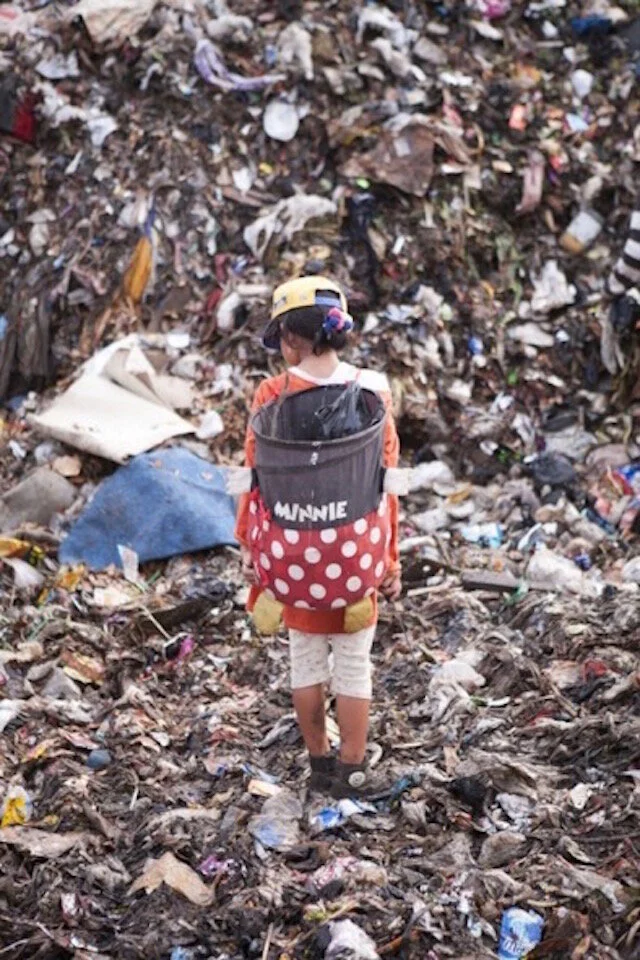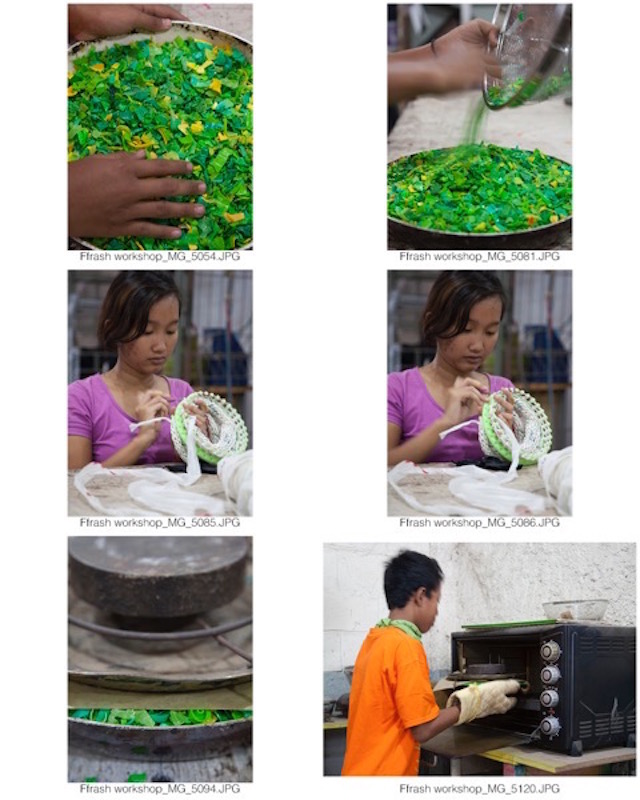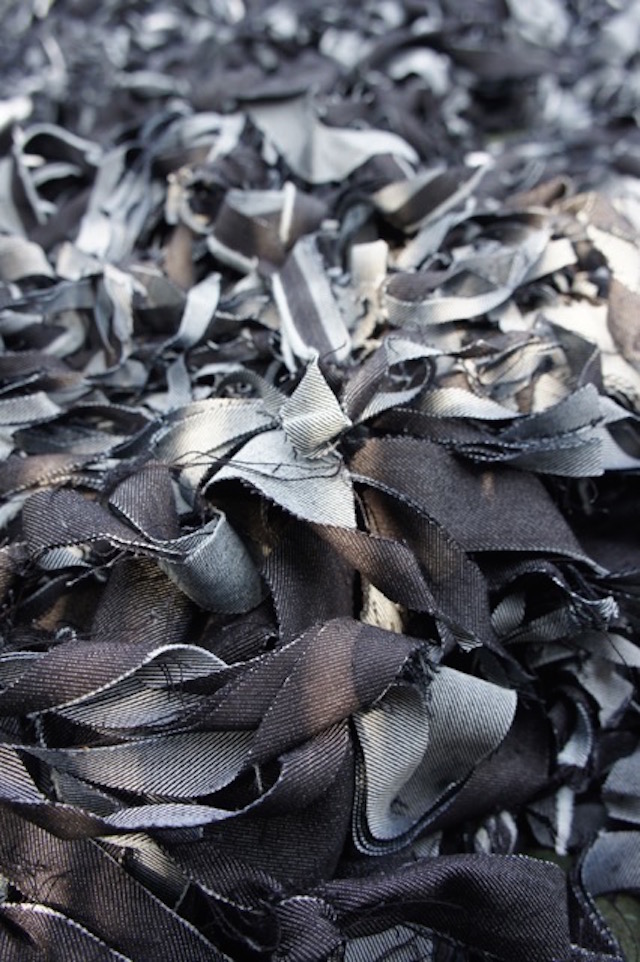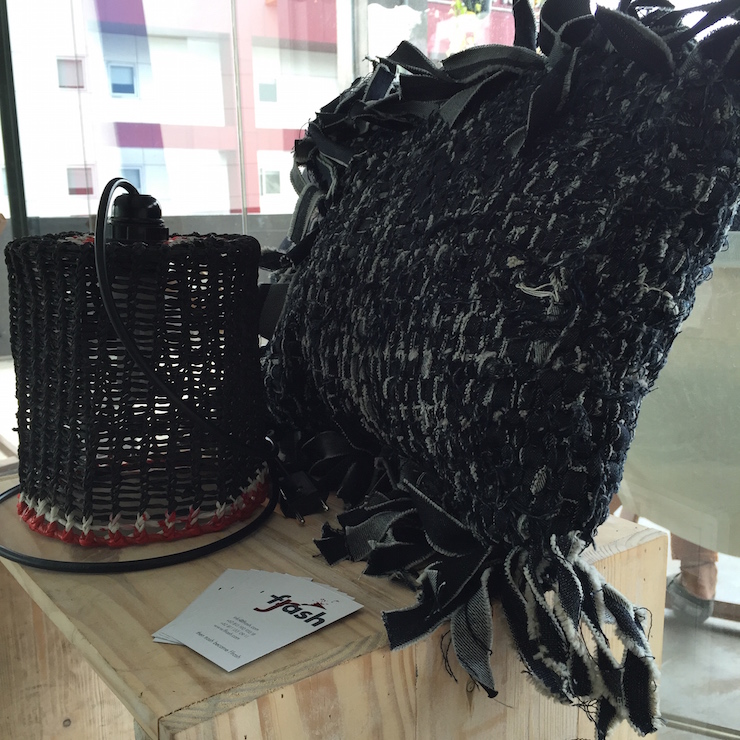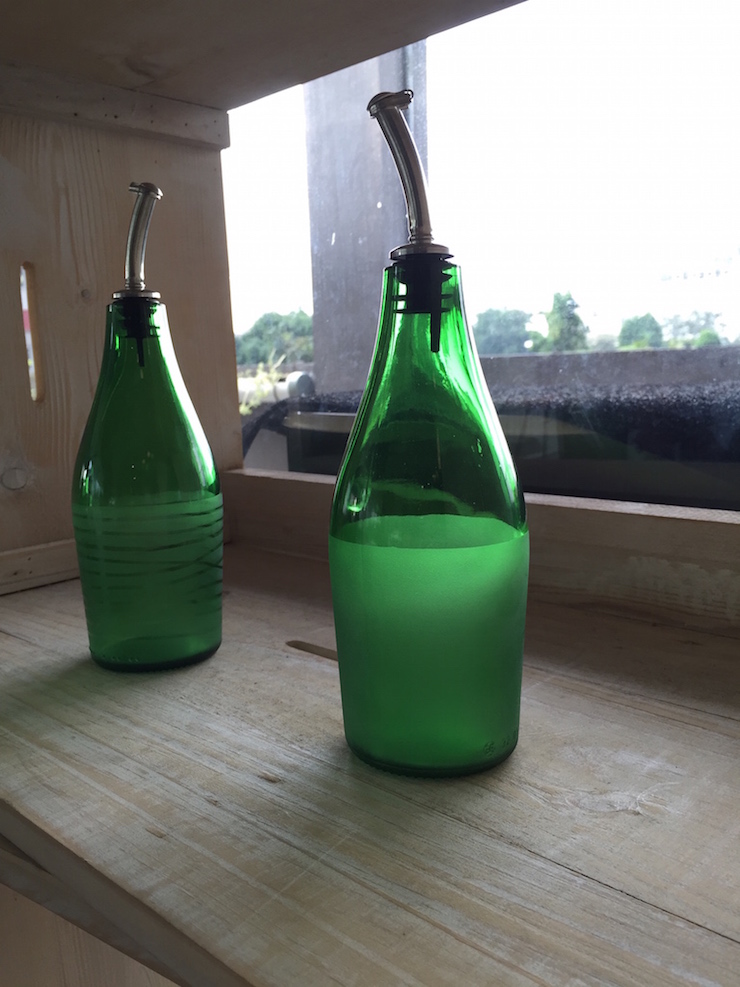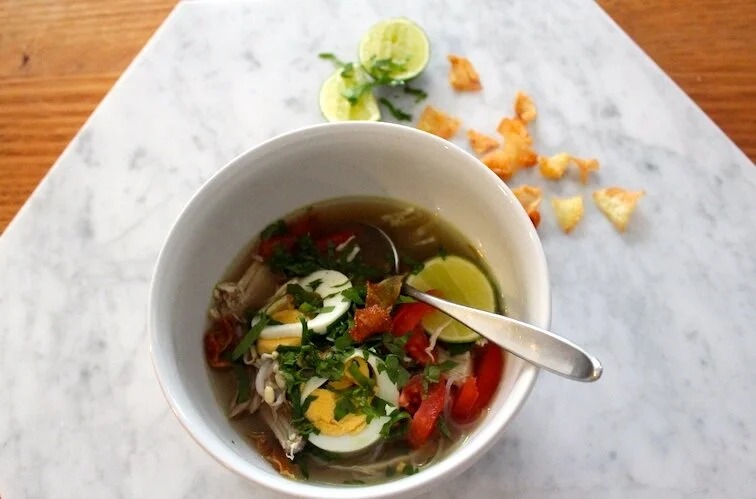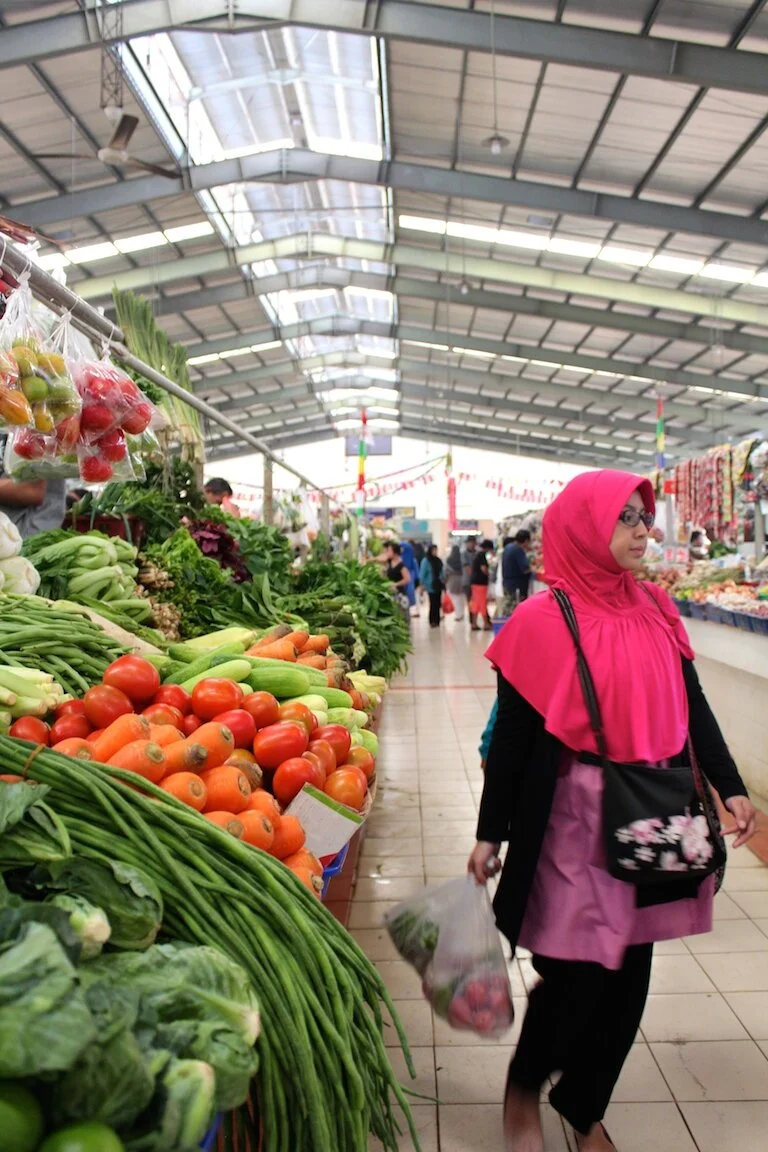Rubbish in Jakarta - The mounting problem and the Ffrash solution
The mega city* of Jakarta has a greater population in excess of 24 million and mostly relies on the Bekasi tip, Bantar Gebang, (located approximately 30 kilometres from the city) to dispose of the 6000 tonnes of waste dumped there each day.
Although Bantar Gebang sprawls a hefty 110 hectares, it is perilously full. Plastic accounts for more than 14% of the waste in Jakarta and less than 7% of recyclable materials are actually recycled. (Source: Indonesia Correspondent George Roberts, ABC Lateline 5/6/13)
The child of a trash picker at Bantar Gebang, Bekasi, West Java (Image: Ffrash)
Today's a journey bespoke post is all about Rubbish. But this isn't a bad news story; in fact quite the opposite. It's a story about being informed and aware that we can all be a part of the solution. It is also the story of one group of people in the Jakarta community that are already making a real difference. That group is Ffrash.
What is Ffrash
Ffrash is a company that produces high-quality sustainable design furniture and home interior products from Indonesian trash. The products are designed by internationally renowned Dutch and Indonesian designers and are created by former Indonesian street children. In conjunction with Kampus Diakonia Modern (KDM), a local foundation that offers shelter to former street children in Indonesia, Ffrash believes that every child deserves the right to a sustainable future in a clean environment. To assist in the realisation of this vision, Ffrash provides Indonesian street children with an opportunity to become skilled workers, who can turn trash into beautiful functional products. Ffrash is 100 percent not for profit.
Former street children learning the skills to create some of Ffrash's recycled products (Image: Ffrash)
*Kenalkan: Renate Suurd-Joossink and Karin van Horssen(Executive Directors of Ffrash)
Renate Suurd-Joossink and Karin van Horssen (Executive Directors of Ffrash)
How did you meet?
R & K: We met each other in Jakarta as our children attend the same school. We hit it off immediately and recognised that our needs extended beyond coffees, pampering and the general frivolities that can fill up your life in this expat existence. We heard about Ffrash and realised that this was a way we could make a difference. Our kids just love that we are involved with the Ffrash project. It is an opportunity for them to see things being made and to see the street children who are being up-skilled. It is inspiring for them.
Can you tell us about your own background
Renate: I have been in Jakarta for about 2.5 years and came to Jakarta directly from my home country of Holland. Prior to arriving in Jakarta, I worked for 15 years manufacturing and selling interior products. We exported to many countries worldwide.
Karin: I have been in Jakarta for 2 years and also came directly from my home country of Holland. I have a background in marketing. For 5 years prior to arriving in Jakarta, I owned my own company which designed clothes for women and girls.
Can you tell us a bit about the story behind Ffrash
R & K: The Ffrash concept was established in 2012 by Dutch expat designer Gina Provo-Kluit who recognised the overwhelming problem Jakarta has with accumulation of rubbish. Gina developed the Ffrash project and began working with street children aged between 16 - 19 years. The majority of these children came from the area of Bekasi and KDM Bantar Gebang (the children of trash pickers), and still do today.
Recruiting the skills of Dutch designers Guido Ooms and Karin van Lieshout, Gina organised for the designers to visit Jakarta as volunteers and together they built a workshop in Bekasi (on the outskirts of Jakarta). They also designed Ffrash’s first collection of wares made out of recycled household trash. Gina and her team up-skilled these children to bring the designs to life. Moreover they provided these individuals with other necessary skills to give them the best chance to succeed, including education, financial assistance and training in basic life skills.
The most recent Ffrash collection (2015/2016) was designed by Karsa (meaning, 'a passion to create'); an established furniture and product design company in Indonesia.
The Ffrash crew at Bantar Gebang, Bekasi, West Java. (Image: Ffrash)
What’s in a name - Why ‘Ffrash’?
R & K: The brand name Ffrash is a combination of the words ‘trash’ and ‘fresh’, with the trash being given fresh life as new consumer products - with the added bonus of all profits being fed back into the community.
Tell us about the products that Ffrash makes
R & K: Once all the necessary trash is collected (including plastic bottles, glass bottles, recycled fabric, plastic bags, billboards, fishing lamps etc), it is then washed and in the case of plastics, it is sorted for colour and crunched into small pieces, melted and poured into moulds. The moulded plastic is then turned into side tables or clocks.
The bottle tops are washed in preparation for processing (Image: Ffrash)
Clean bottle tops ready for melting and moulding (Image: Ffrash)
Plastic bags are turned into lampshades, fishing lamps (which were once thrown overboard when broken) become beautiful vases. Excess denim collected from the fashion industry is woven into pillows and stuffed with finely shredded plastic bottles.
Ribbons of recycled denim (Image: Ffrash)
Ffrash's recycled products: a lampshade, made from recycled plastic bags and a denim pillow (made from reclaimed denim and shredded plastic bottles)
Fishing lamps that when broken, were once thrown overboard are now being given a new lease of life (Image: Ffrash)
Fishing lamp Vase
Wine bottles are converted into water bottles with matching glasses or into new wine goblets. Everything is hand-made and no fancy tools are used.
Using the whole bottle. A wine glass and a wine goblet
Recycled water bottles are transformed into elegant oil and vinegar bottles
Where does Ffrash source the materials to produce their wares?
R & K: The wine bottles are generally given to us by friends and we are working with some restaurants to acquire their used wine bottles too. We are always in need of wine bottles and glass water bottles (see below for how you can help!). We buy the majority of our other materials directly from the trash pickers.
What happens to the proceeds from sales?
R & K: All profits are divided between the children and the running of the workshop (including the purchase of materials and employment of a workshop manager). Apart from being provided with pocket money, the children are also supported in their 18 month traineeship, receiving weekly English lessons and given the opportunity to develop skills that they will hopefully use to fulfil their own dreams.
During your time with Ffrash, have you noticed any change in the way Jakarta is disposing of waste?
R & K: We have just starting to notice the presence of public rubbish bins around Jakarta; encouraging people to separate and dispose of their rubbish more thoughtfully. This will take time as it is not yet a common practise in Jakarta.
What excites you about life in Jakarta?
Renate: It really is a different world here. In Holland, every day is more or less the same. In Jakarta, everyday I learn something new. It makes it worthwhile to be here for me but also for my family.
Karin: I truly believe that you can live anywhere as long as you are with your family. It's exciting to see my kids adapting so well. They didn't want to leave Holland but they already say it’s a good experience living here in Jakarta. I’ll be excited to hear what they have to say in 5 or so years about their time here in Jakarta.
What you can do to help make a difference
1. Support recycling projects:
Buy: Ffrash products are available online or by visiting one of their stockists (Komunal 88, Dia.lo.gue, Jakarta’s various bazaars, Indonesian Design Magazine)
Act: Collect your glass bottles, especially wine and water bottles and contact Ffrash to organise collection. Also, spread the word - tell your friends to collect their wine bottles and give them to you… make it your responsibility.
Facebook: Ffrash
Telephone Renate: +62 813 190 93 318
Telephone Karin: +62 811 155 0911
KDM Green Project (recycling service)
Who: Recycled waste collectors for your home, office, school etc.
Act: Arrange a weekly recycled waste collection for your neighbourhood by calling KDM
Website: http://jakartagreenproject.com
email: recycle@jakartagreenproject.com
Telephone: +62 (0) 218 443545
XS project
Who: A World Fairtrade Organisation that buys waste material from trash pickers and coverts it into new products, resulting in items that 'embody both environment and social care'.
Buy: Purchase recycled products (contact XS project directly)
Act: Donate waste materials such as billboards, banners and upholstery
Jl. Kaimun Jaya No 28
RT 010/RW04
Cilandak Barat 12430
Website: www.xsproject-id.org
Telephone: +62 812105 3614
2. Make simple changes to your everyday practises
Don’t buy small bottles of water. This rapidly equates to more waste. Instead only buy water in bulk and refill reusable bottles (which are BPA free).
Always refuse excess packaging. Take your own reusable grocery bags to the supermarket or pasar and keep a fold-up shopping bag tucked away in your handbag.
Reuse all of your plastic bags. Line your waste paper bins, use them to pick up pet waste, keep some in the car and school bags for sopping wet shoes and sports clothes.. you get the idea!
Stock up on reusable quality plastic containers to use in lunch boxes and to store food in the pantry or fridge. Try to avoid plastic wrap or excess use of plastic clip-lock bags.
If you have home help, teach your staff about the importance of minimising waste. Buy coffee in a jar not individual portions and ensure your staff have a recycling station in their kitchen.
If you have home help, ensure staff are briefed on how to prepare rubbish for the recycling collection. Visit KDM Green Project website to find out more and organise for the recycling truck to visit once a week. If you are in a compound or are familiar with your neighbours, organise a collective effort to recycle.
3. Volunteer
Contact the organisations (listed above) and see what you can do to assist them with their worthy cause. No amount of time that you can give is too small.
*kenalkan - let me introduce
*mega city: a city with a population in excess of 10 million
Words: Jo Stevens Photography: Ffrash and a journey bespoke


